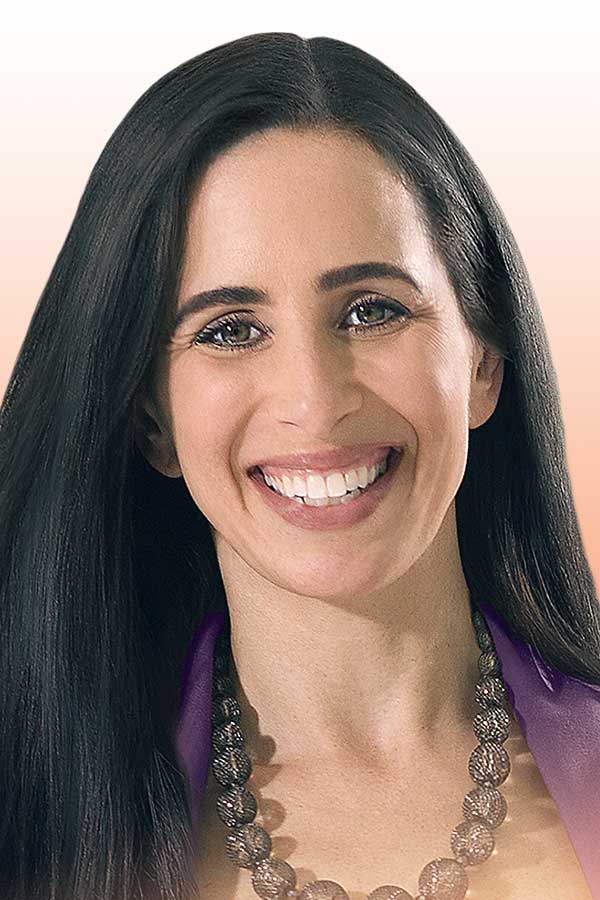
Most people work to make a living, but for some, the work is a calling that drives them to both do more and be more. A job is only something that is listed on a resume, but a calling, once we find it, is something we pursue heartily because it resonates in our soul. The most important question we will ever ask is “why.” Why am I here? Why do I exist? Why was I created? Asking lots of why questions leads us to our life’s calling. Understanding our calling is critical to finding a career that gives our work life meaning. Without a calling, a job is just work. When we find a calling, it engages the core of our being and drives us to fulfill our goals and dreams.
What we choose to BE is a vocation. What we choose to BECOME is a calling.
I do not believe for a moment that happiness in life is determined by the forty-plus hours we spend at work each week or by the paycheck we bring home. In fact, after thirty-seven years in the workforce, I am certain it is not. They are only pieces of a much bigger picture. Hopefully, our lives are full of purpose, passion and people who fulfill our hearts, dreams and desires. Our professions are the vocational fulfillment of our calling. They are doing the very thing God made us for. However, for most people, making a living is a necessity, and if we are struggling to make one or confused about our calling, it will negatively impact all the other areas of our lives.
Like any other passion in our lives, work must be nurtured and cultivated, or we will be in danger of losing our love for it. Few people would ever claim that work is the most important priority in life. However, it is the way we provide for ourselves and our families and contribute to the marketplace and our communities.
In the corner of my screened in porch stands a Ficus tree. It’s in a corner where it soaks in the rays of the sun. I noticed how it had grown in recent weeks by stretching its branches and leaning toward the window to take advantage of both the sun and humidity. The infusion of sun and moisture had caused this beautiful plant to grow upward.
There is something so satisfying about seeing a living thing grow and be healthy, stretching out to absorb that which nurtures it. The image caused me to pause in my morning quiet time and ask myself a question.
Am I growing up?
That may sound like a very silly question at my age. Of course, I am growing up, right? Not necessarily. We all grow older, but we don’t all grow up.
Think back to when you were little and finished the familiar sentence, “When I grow up, I want to be…” I assume that most people, like me, completed that sentence with something they wanted to be rather than someone they wanted to become. Choosing something to be and choosing someone to become are two very different things. “I want to be a firefighter” is very different from “I want to be a mature, wise, kind and generous person.” What we choose to BE is a vocation. What we choose to BECOME is a calling.
Like the Ficus tree on my porch, growing up requires us to stretch and yearn for the things that nurture us. If we stop growing up, we just grow old, and we’ll begin to wither just like the plant would without sunlight and humidity.
If we have been called to lead others, it is imperative that we continually grow up, and it is quite obvious that the more we grow up, the better we will lead.
What nurtures a leader to grow up? How can we grow as emerging leaders?
- Envision the person you want to become. True leaders don’t focus on a title or a role; instead, they focus on the kind of person they need to be to best lead. They identify the character qualities they need and want to develop and accept that the titles and position will follow.
- Nurture your soul. Leaders focused on becoming the person they were destined to be will do the hard “soul work” of developing their self-image. Great leaders have self-awareness and self-confidence that comes from a deep understanding of themselves.
- Develop your mind. Reading, studying, learning from other leaders and taking on stretching assignments keep a leader’s mind engaged and sharp.
- Invest in others. The old saying that you learn what you teach is true. Investing in others is certainly important to preparing the next generation of leaders, but it also gives leaders the opportunity to reflect, repeat and reinforce the principles they know to be true. This practice not only grows others but also grows leaders.
- Take care of yourself. If leaders completely deplete themselves of energy, they cannot be effective. An important skill of a leader is the ability to rest mind and body, allowing themselves to refresh and have more to give to those they lead. Leadership is a lifelong journey, and to go the distance, they must take care of their bodies, minds and hearts. For all the drive, initiative and ambition that fills a leader’s day, there must be equal opportunity to play, relax and rest. It creates the rhythm that allows them to go the distance.
Growing into our calling and leading from it propels us to the work we have been made to do.
Dwell for a little longer on the question, do you want to grow up or just grow old? If you want to grow up, consider how you can incorporate these five actions into your lifestyle. If you have drifted from your original vision, revisit these ideas. Growing up sounds like a much better option than simply growing old. Growing into our calling and leading from it propels us to the work we have been made to do.



 Juliet Funt is the CEO and founder of WhiteSpace at Work, a training and consulting firm helping organizations, their leaders and employees reclaim their creativity, productivity and engagement. With thought-provoking insights and actionable tools, she has become a globally-recognized expert in helping leaders cope with the “age of overload” in which we all live and work. A warrior against reactive busyness and a force for change in organizations around the world, Funt teaches a streamlined method for personal process improvement that reduces complexity in the workplace. Teams that incorporate a WhiteSpace mindset and skill set increase creativity and engagement, reclaim lost capacity and execute at their finest. Her clients include a number of Fortune 100 companies and span a wide array of industries, from financial services to technology, manufacturing to the military. Funt’s new book, A Minute to Think, releases at the 2021 Summit.
Juliet Funt is the CEO and founder of WhiteSpace at Work, a training and consulting firm helping organizations, their leaders and employees reclaim their creativity, productivity and engagement. With thought-provoking insights and actionable tools, she has become a globally-recognized expert in helping leaders cope with the “age of overload” in which we all live and work. A warrior against reactive busyness and a force for change in organizations around the world, Funt teaches a streamlined method for personal process improvement that reduces complexity in the workplace. Teams that incorporate a WhiteSpace mindset and skill set increase creativity and engagement, reclaim lost capacity and execute at their finest. Her clients include a number of Fortune 100 companies and span a wide array of industries, from financial services to technology, manufacturing to the military. Funt’s new book, A Minute to Think, releases at the 2021 Summit. Dr. Francesca Gino is a professor in the Negotiation, Organizations & Markets Unit at Harvard Business School recognized for her award-winning research and teaching on how to have more productive, creative and fulfilling lives. Dr. Gino has a diverse expertise on the psychology of organizations. She is a sought-after consultant and speaker—some of her clients include Disney, Goldman Sachs, Honeywell, Novartis, P&G, as well as the U.S. Military. Dr. Gino’s research has been featured in The Wallstreet Journal, The Economist, Harvard Business Review, Financial Times, The New York Times, Newsweek, National Public Radio, Scientific American and Psychology Today. She has been honored as one of the world’s Top 40 Business Professors under 40 and one of the world’s 50 most influential management thinkers by Thinkers50. In Dr. Gino’s latest book, Rebel Talent, she shares her research behind why it pays to break the rules at work and in life.
Dr. Francesca Gino is a professor in the Negotiation, Organizations & Markets Unit at Harvard Business School recognized for her award-winning research and teaching on how to have more productive, creative and fulfilling lives. Dr. Gino has a diverse expertise on the psychology of organizations. She is a sought-after consultant and speaker—some of her clients include Disney, Goldman Sachs, Honeywell, Novartis, P&G, as well as the U.S. Military. Dr. Gino’s research has been featured in The Wallstreet Journal, The Economist, Harvard Business Review, Financial Times, The New York Times, Newsweek, National Public Radio, Scientific American and Psychology Today. She has been honored as one of the world’s Top 40 Business Professors under 40 and one of the world’s 50 most influential management thinkers by Thinkers50. In Dr. Gino’s latest book, Rebel Talent, she shares her research behind why it pays to break the rules at work and in life. When Michelle Poler, Venezuelan native, art director and branding strategist, decided to start a project to overcome her own personal fears, she didn’t expect it to go viral—100 Days Without Fear caught the attention of the Today Show, Forbes, CBS, CNN, Huffington Post, Buzzfeed, Fox News, Telemundo, Glamour, Elle, The Rachael Ray Show, Refinery29 and Daily Mail among many others. Gaining an audience captivated by her passion, bravery, creativity, humor and practical life-changing advice, Poler founded Hello Fears, a social movement reaching more than 70 million people worldwide, empowering them to step outside their comfort zone and tap into their full potential. She is a sought-after keynote speaker, having spoken for TEDx, Google, Yum Brands, Facebook, Wells Fargo, ESPN, Netflix, Procter & Gamble, Microsoft, Toyota and many more. Poler is the author of, Hello, Fears: Crush Your Comfort Zone and Become Who You’re Meant to Be, which helps people be their best selves and focus on the best possible outcomes.
When Michelle Poler, Venezuelan native, art director and branding strategist, decided to start a project to overcome her own personal fears, she didn’t expect it to go viral—100 Days Without Fear caught the attention of the Today Show, Forbes, CBS, CNN, Huffington Post, Buzzfeed, Fox News, Telemundo, Glamour, Elle, The Rachael Ray Show, Refinery29 and Daily Mail among many others. Gaining an audience captivated by her passion, bravery, creativity, humor and practical life-changing advice, Poler founded Hello Fears, a social movement reaching more than 70 million people worldwide, empowering them to step outside their comfort zone and tap into their full potential. She is a sought-after keynote speaker, having spoken for TEDx, Google, Yum Brands, Facebook, Wells Fargo, ESPN, Netflix, Procter & Gamble, Microsoft, Toyota and many more. Poler is the author of, Hello, Fears: Crush Your Comfort Zone and Become Who You’re Meant to Be, which helps people be their best selves and focus on the best possible outcomes. Over the course of her career, Ibukun Awosika has had the honor of influencing Nigeria’s economic growth by chairing a number of influential corporate and nonprofit boards. She is Founder and CEO of a group of manufacturing, retail and bank-way security system companies; as well as, Chairman of First Bank of Nigeria Limited, the country’s premier banking brand. Globally recognized, she has received multiple awards, including the 2020 Forbes “Woman Africa Chairperson” award, and was also the first Nigerian recipient of the prestigious “International Women Entrepreneurial Challenge” award in 2008. Through her projects, Ibukun champions entrepreneurs, empowers women and youth and supports missionaries who provide medical and educational supplies to those in need.
Over the course of her career, Ibukun Awosika has had the honor of influencing Nigeria’s economic growth by chairing a number of influential corporate and nonprofit boards. She is Founder and CEO of a group of manufacturing, retail and bank-way security system companies; as well as, Chairman of First Bank of Nigeria Limited, the country’s premier banking brand. Globally recognized, she has received multiple awards, including the 2020 Forbes “Woman Africa Chairperson” award, and was also the first Nigerian recipient of the prestigious “International Women Entrepreneurial Challenge” award in 2008. Through her projects, Ibukun champions entrepreneurs, empowers women and youth and supports missionaries who provide medical and educational supplies to those in need. Bianca Juarez Olthoff understands the power of words and is known to wield them wisely to help people navigate life, live significantly and connect in community. As both a pastor and author who has been in ministry for more than 20 years, she inspires people to live with passion. Her leadership at The Father’s House Orange County has allowed her church to reach people all over the world. As the founder and president of the nonprofit, In The Name of Love, she is committed to serving the incarcerated and equipping them to discover freedom despite their surroundings. Olthoff describes herself as a passionate, Jesus-loving, Bible-teaching, book-writing MexiRican. Experience her energy in her best-selling book, Play with Fire and her most recent book, How to Have Your Life Not Suck: Becoming Today Who You Want to Be Tomorrow, which explores how to win at work and navigate through life’s many decisions.
Bianca Juarez Olthoff understands the power of words and is known to wield them wisely to help people navigate life, live significantly and connect in community. As both a pastor and author who has been in ministry for more than 20 years, she inspires people to live with passion. Her leadership at The Father’s House Orange County has allowed her church to reach people all over the world. As the founder and president of the nonprofit, In The Name of Love, she is committed to serving the incarcerated and equipping them to discover freedom despite their surroundings. Olthoff describes herself as a passionate, Jesus-loving, Bible-teaching, book-writing MexiRican. Experience her energy in her best-selling book, Play with Fire and her most recent book, How to Have Your Life Not Suck: Becoming Today Who You Want to Be Tomorrow, which explores how to win at work and navigate through life’s many decisions.


Recent Comments